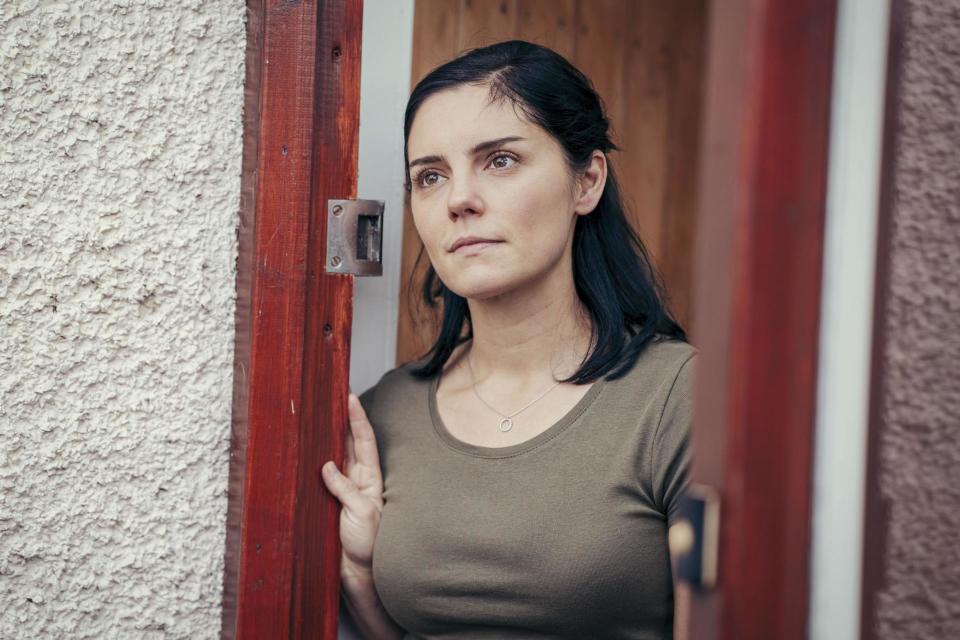Annabel Scholey explains why The Salisbury Poisonings drama can give us hope

“I’ve never played anyone who is actually still alive before," says Annabel Scholey, when asked about filming The Salisbury Poisoning. “And certainly not someone who had just lost everything.”
Scholey, 36, a star of historical fantasy Britannia and the BBC's divorce drama The Split, knows how important it was to get her portrayal of the real Sally Bailey pitch perfect. The three-part drama takes viewers back to the events of March 2018, when the sleepy town of Salisbury became the centre of an international security scandal.
Former Russian spy Sergei Skripal and his daughter Yulia barely survived an attempted murder when the lethal the nerve agent Novichok was used on them. Russia was implicated, Theresa May locked horns with Vladimir Putin and two suspects identified by CCTV footage used a Russian TV interview to insist they were merely visiting to marvel at the wonderful cathedral. Many of us watched, from the outside in, transfixed.
Scholey, though, reminds me that the heart of the story lies elsewhere, centred in the local community that was devastated by the descent of bioweapon specialists in hazmat suits, police helicopters and unintended victims. Dawn Sturgess, a mother-of-three, died after she and her partner Charlie Rowley picked up a fake perfume bottle used to transport Novichok; DS Nick Bailey, a police officer (played by Rafe Spall), was also poisoned when he was sent to investigate the Skripals home.

"A lot of people don’t even remember that there was a policeman, they just remember the [Skripals] on the bench,” says Scholey, who plays Bailey’s wife, Sarah. “To not know their story, a really important story, isn’t right - they deserve to have it told.”
After finishing work that day, Bailey unwittingly contaminated his home. "Everything the kids owned, we lost all that, the cars, we lost everything,” he later told the BBC's Panorama (significantly, this dramatic adaptation was written by Panorama investigative journalists Adam Patterson and Declan Lawn, who lent the integrity of their storytelling to director Saul Dibb).
Spall and Scholey were invited to their Salisbury home to meet the Baileys for tea and “were just open mouthed really at the extent of what they’d gone through, [and that they were] still standing, and clearly a really tightly knit family who adore each other.” Bailey has indeed made a remarkable recovery - he even ran the Salisbury marathon last August.
“We heard a very detailed account of every symptom that he had: how he felt from inside, how his vision failed,” says Scholey, who admits she felt at pains not to appear “ghoulish” when probing for details that would help her with her characterisation. Bailey recalled being suddenly afflicted by visions of an inferno rushing to meet him. "He felt incredibly hot, and he could see flames coming at him, his vision blurred, he sweated buckets,” Scholey recounts, clearly still gobsmacked. "And he was just sat there in front of us having his tea while recalling it all, and he just looks like the most in-shape, fit young guy. You can’t believe he went through that two years ago.”
There was some concern the timing of the drama would seem, for want of a better word, triggering, especially at the peak of a global pandemic: the hazmat suits, gloves and masks, the danger of being infected by simply touching the wrong surface. As a result, the run date was moved back from March to now.
“There was a feeling it wasn’t the right moment,” says Scholey. “But I watched it with that in mind and I feel like actually it’s quite an important thing to put on now, because it’s helpful to see ordinary people who are resilient and brave dealing with a national emergency. And they come through.”

Did she have safety concerns about walking into an ongoing spy scandal? “I definitely asked my husband after I got offered the part: do you think the Russians are going to be watching this?”, she laughs. But she emphasises how seriously the cast took their duty of care to the story.
“I’m not convinced the government really reacted in the ideal way. I know it wasn’t absolutely proven but they didn’t investigate it fully. A person died. It was an attack, a weapons attack on our country and citizens. And I personally feel like they got away with it.”
Scholey, who is usually based in Peckham, was renovating a new property in Ireland with her family when lockdown began, and has been stuck there ever since. “I do worry about work after all this,” she says, with filming for the third series of Britannia on hold. “But I’m a mum, I’ve got an eighteen-month-old daughter, and there’s been no time to overthink, or over-worry, because she’s been demanding all my attention."
She says she’s had time to watch her "completely blossom into this little girl while we’ve been here which is amazing, and I would have missed that [if I'd been filming]. She’s talking now, and she’s walking.” And that’s what’s important, really. If the story of Salisbury or the pause of the pandemic have a lesson for us, it’s that those dearest to us are all that truly matter.
The Salisbury Poisonings will air on Sunday 14, Monday 15 and Tuesday 16 June on BBC One.

 Yahoo News
Yahoo News 